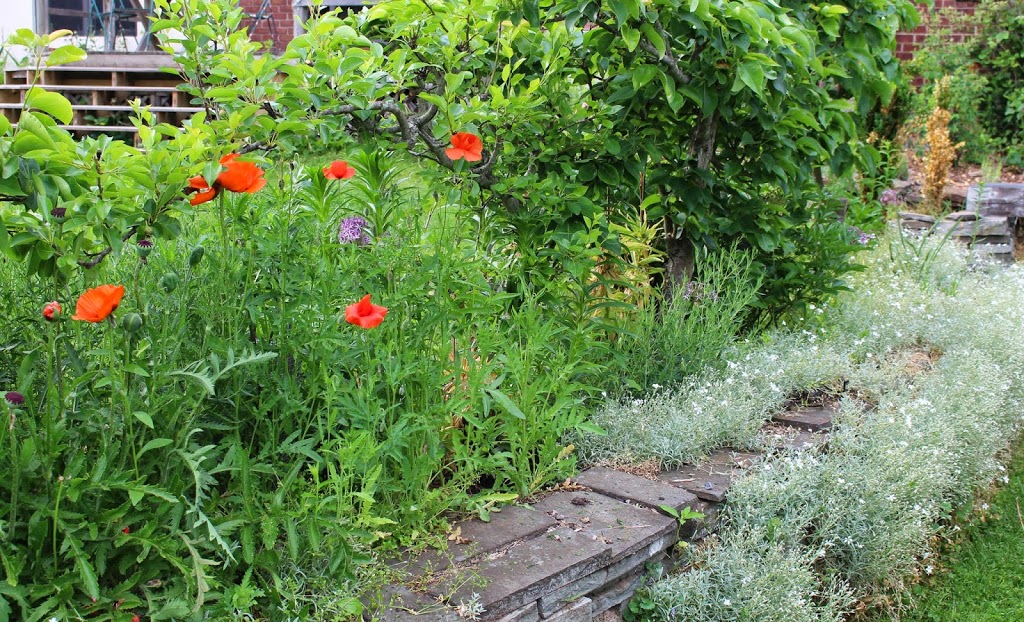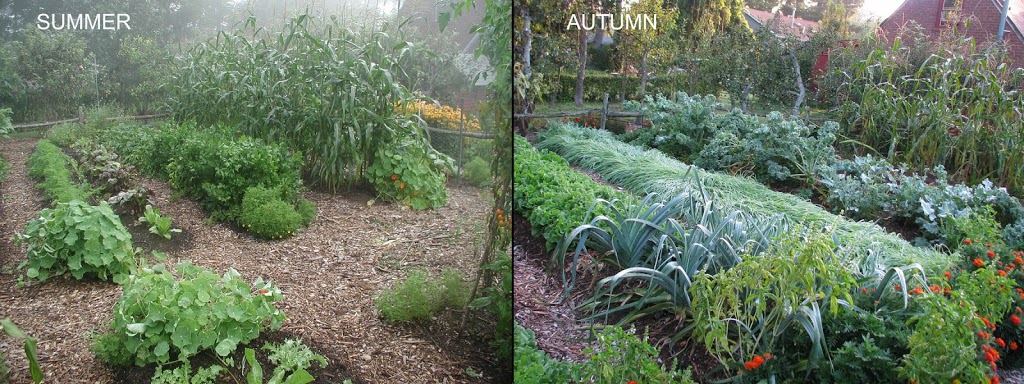May 21, 2009
For a day every week or so, my yard smells like salad dressing. No, I’m not getting the lettuce dressed while it’s still out in the garden. Yes, that smell is vinegar. For the past few years, regular strength vinegar, straight up, has provided nontoxic (except to sprayed weeds), sustainable, “green” weed control on the edges of beds, in paths, and on my brick terrace.
I specify “regular strength” vinegar because our USDA has also been looking into vinegar as weedkiller. On the theory that if a little of something is good, a lot must be better, USDA research focuses on using more concentrated solutions of vinegar – even 20%. Those more concentrated solutions are more effective but you have to be very careful using that stuff. It burns. I’ll stick with salad dressing strength 6% solution.
A couple of benign additions increase the power of my “regular strength” vinegar. First comes vegetable oil – no, not salad dressing again, but to helps the vinegar stick to weeds’ leaves. I use 2 tablespoons of canola oil per gallon of vinegar. Then comes soap, specifically Ivory liquid detergent, 1 tablespoon per gallon, to better spread the vinegar and oil over the leaves.
This mix only kills greenery so needs to be applied regularly to starve roots. Hence my repeated applications.
*****************************************
It’s amazing how many seedlings you can grow in a small space using a Speedling or some other multi-cell plastic (or “plug”) tray. These trays are re-usable, with tapered cells each about an inch square. For example, a 1 foot by 8 inches area was home to my 54 zinnia seedlings. The tapered design allows for good root development and, if the trays are elevated on a screen, the roots stay in bounds by being air-pruned as they try to exit the bottom hole.
I had 54 zinnias, 54 Signet marigolds (ferny, lemon-scented foliage and small, yellow flowers), and a slew of other flowers that I had sowed a month and a half ago in the enthusiasm of spring. A few days ago, the time came to figure out just where to plant all those seedlings. Flowers generally look best when planted out in large masses rather in isolation or anemic strips, so with this many plants, it’s hard to go wrong.
Planting is quick with plug trays. The seedlings were at just the right stage for transplanting, so all I had to do was yank on each stem to pop out a whole plant, root and all. A quick poke of my trowel into the ground was all that was needed to make a home for each seedling. Firming the soil around each plant after dropping it into its waiting home completed the planting . . . except for watering. That watering was thankfully supplied by the inch-and-a-half of rain that followed my planting.
Small plants establish more quickly than large plants, and with less care, so I’m finished with these plants except to enjoy their flowers.
*********************************************
I must have a built-in temperature sensor in my head. Last night (May 18th) my eyes sprung wide open at 1:38 a.m., I walked over to my remote thermometer, and saw that the temperature had just reached that magic number of 32 degrees Fahrenheit. The sky was clear and the morning was, to say the least, early, so I guessed that the mercury would dip even lower.
Preparations had already been made for a light frost, but who knew just how cold temperatures might plummet? After all, last year at about this time, a sunny morning greeted me with leaves blackened by a severe freeze. So I got dressed and threw any coverings I could find over any plants that could be protected and needed to be. Key lime, pomegranates, lemon trees, and other potted, tender plants went into the garage. Nothing could be done about the blossoming hardy kiwifruit vines, the soon to blossom grapes, and the fruitlets already developing on apples, pears, and pawpaws.
I went back to sleep.
Morning saw the thermometer reading 28 degrees, hoary frost on the lawn, and a sunny day in the offing. Damage assessment would have to wait until the sun melted frost off everything. And the damage, assessed this morning at 9:30, was . . . . zip, nil, nein, nada, rien, nothing. It’s amazing the way even tender plants, like those marigolds and zinnias I had planted (and had not protected because there were too many of them), toughen up after a few days outside. It looks like a good year for fruit – unless we get another, more serious, freeze.
**********************************************






Leave a Reply
Want to join the discussion?Feel free to contribute!